 December 22, 2020
Earlier this year, the WFPG created this weekly listing of global affairs programs, articles, podcasts, and books by or featuring women, as a way to continue to amplify women’s voices in the virtual sphere. As this tumultuous year draws to a close, we look back at all that happened in the world of foreign affairs in 2020—and the expert analysis we have looked to for context and insight along the way.
January–February
Iran: Qasim Soleimani and Abu Mahdi al-Muhandis are assassinated by the US in Bagdad, drastically increasing tensions and threatening further conflict
Libya: President Erdogan deploys the first Turkish troops to Libya
Brexit: The UK’s Withdrawal Agreement Act passes and the UK officially leaves the EU
Climate Change: Bushfires in Australia are directly linked to climate change and rising temperatures
Afghanistan: The US and Taliban sign conditional peace agreement, paving the way for a gradual troop draw-down and eventual peace
Israel-Palestine: The Trump administration unveils its Middle East peace plan, but many criticize its potential negative impact on Palestinians
COVID-19: The novel coronavirus begins sweeping across the world, raising concerns over not its impact on not only public health, but also supply chains and the global economy
March–April
COVID-19: The WHO declares COVID-19 a pandemic. As governments around the world scramble to contain the virus and its impacts on the public health and national security, a trend emerges among those that are most successful—they are led by women
NATO: North Macedonia joins NATO and comes one step closer to EU membership
WHO: The US suspends funding to the World Health Organization, raising concerns over the organization’s economic viability and the future of a multilateral fight against the pandemic
Israel: Prime Minister Benjamin Netanyahu and rival Benny Gantz agree to form a unity government after three inconclusive elections in a single year
Syria: Two former members of the Syrian military go on trial for war crimes—the first time Syrian military officials are prosecuted for their role in the civil war
May–June
China and India: A long-standing dispute near Tibet erupts into violence, leading to several casualties and raising regional tensions
OECD: Colombia becomes the 37th member of the Organization for Economic Cooperation and Development
Venezuela: A botched coup fails to overthrow President Nicolás Maduro
US and Russia: The US withdraws from the Open Skies Treaty with Russia, a 1992 agreement that allows reconnaissance flights over each other’s territories to collect military data
Costa Rica: In accordance with a Inter-American Court on Human Rights ruling, Costa Rica becomes the first Central American nation to legalize same-sex marriage
Libya: Tensions continue to rise in Libya as the proxy war between Russia and Turkey heats up
Korea: North Korea destroys the Inter-Korean Liaison Office in Kaesong, raising doubts around the likelihood of improving Korean relations
Protests: After the murder of George Floyd in Minneapolis, solidarity movements begin across the world as protestors denounce state-sponsored violence and call for change
Hong Kong: China passes a new national security law for Hong Kong, prompting concerns that it will be used to prosecute political activists and stifle civil liberties
July–August
USMCA: The United States-Mexico-Canada Agreement comes into effect on July 1, replacing NAFTA and affecting regional trade and security
Russia: A constitutional referendum leads to sweeping changes in Russia’s constitution, including a reset on Putin’s term limit that would allow him to stay in power until 2036
Lebanon: Improperly-stored ammonium nitrate explodes in Beirut, killing over 200 people and unhousing 300,000. The tragedy comes in the midst of governmental impotence, civil unrest, and a refugee crisis exacerbated by COVID-19
Belarus: The supposed landslide victory of President Alexander Lukashenko over opponent Svetlana Tsikhanovskaya raises international allegations of election fraud and sparks pro-democracy protests in Belarus. Demonstrations continue to this day, renewing questions about the future of Belarus
Global Health: Africa is declared free of wild polio, a major global public health milestone
Japan: Prime Minister Shinzo Abe resigns, and Chief Cabinet Secretary Yoshihide Sugo is elected as his successor
TikTok: Tensions rise between the US and China when Trump signs an executive order banning TikTok and WeChat over concerns that the data it collects pose a national security risk; courts later block the bans from taking effect
September–October
Kosovo and Serbia: The two nations agree to normalize economic relations, a breakthrough in their tumultuous relationship
Venezuela: The UN Human Rights Council formally accuses the government of crimes against humanity, citing evidence of unlawful executions, enforced disappearances, arbitrary detentions, and torture
Nagorno-Karabakh: Violence breaks out in the disputed territory between Armenia and Azerbaijan, resulting in thousands of casualties and raising concerns over a potential proxy conflict between Turkey and Russia
FinCEN: Leaked documents reveal that some of the world’s biggest banks knowingly allow criminals to move billions across the globe without holding them to account
Israel: The Abraham Accords establish normalized diplomatic relations between Israel and the United Arab Emirates and Israel and Bahrain. While some see this as a victory for Middle East peace, others raise concerns about the agreement’s impact on the Palestinians
Kuwait: Emir Sheikh Sabah Al-Ahmad Al-Sabah passes away aged 91 after four decades of leadership, leading to speculation about the future of Kuwait's leadership
UNGA: The UN General Assembly convenes virtually for the first time on its 75th anniversary
Kyrgyzstan: Citizens protest after allegations of vote-buying call into question the integrity of the recent parliamentary elections. Though results are annulled, political unrest and uncertainty persist
Thailand: After months of simmering tensions, massive protests erupt in Thailand with citizens making unprecedented demands to reform the monarchy
Poland: The constitutional court issues a ban on almost all abortions, triggering the massive protests
November–December
US Election: Joe Biden is elected the 46th President of the United States, and Kamala Harris is elected the first woman Vice President in American history, as well as the first person of color to hold the office. Leaders around the world look to what the new administration will mean for relations with the US, as well as for major global issues including climate change, gender equality, and the pandemic. Although experts have assured that the 2020 election was secure, both foreign and domestic disinformation has taken its toll, with Trump and many of his supporters continuing to deny the results. Some world leaders have been conspicuously slow to recognize Biden’s win as well, possibly sensing danger to their own authoritarian rule
Ethiopia: Armed conflict breaks out in the Tigray region between liberation forces of northern Ethiopia and the Ethiopian military, with assistance from Eritrea. World leaders and humanitarian organizations fear the violence could spill out and destabilize the region
Asia-Pacific: The Regional Comprehensive Economic Partnership is signed by 15 nations—though not the US—creating the world’s largest trade bloc and signaling China’s influence in the region
Iran: Top Iranian nuclear scientist Mohsen Fakhrizadeh is assassinated, with Israel suspected to be behind the attack
Morocco: The US recognizes Moroccan sovereignty over Western Sahara territory as Morocco normalizes relations with Israel
Sudan: The US removes Sudan from its state sponsors of terrorism list after nearly 30 years of diplomatic isolation
Nigeria: More than 300 schoolboys are kidnapped by Boko Haram in northwestern Nigeria
Cybersecurity: Recent computer breaches across multiple government agencies including the Pentagon, DHS, and the Treasury are being attributed to Russian intelligence agencies
COVID-19 Vaccine: Several nations have authorized one or more COVID-19 vaccines, beginning a complicated distribution process. Vaccines from other corporations are expected to receive authorization soon as international organizations and NGOs call for an equitable distribution, fearing low-income countries may get left behind in the scramble
Turkey: The US imposes sanctions on Turkey, a NATO ally, over its purchase of Russian missile defense systems
Brexit: With the transition period expiring on December 31, the prospect of a No-Deal Brexit looms over the UK and EU
2020 Books of the Month
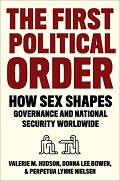 The First Political Order: The First Political Order: How Sex Shapes Governance and National Security Worldwide Valerie Hudson, Donna Lee Bowen, Perpetua Lynne Nielsen Global history records an astonishing variety of forms of social organization. Yet almost universally, males subordinate females. How does the relationship between men and women shape the wider political order? The First Political Order argues that the persistent and systematic subordination of women underlies all other institutions, with wide-ranging implications for global security and development. Read more 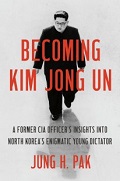 Becoming Kim Jong Un: Becoming Kim Jong Un: A Former CIA Officer’s Insights into North Korea’s Enigmatic Young Dictator Jung H. Pak A groundbreaking account of the rise of North Korea’s dictator Kim Jong Un—from his nuclear ambitions to his summits with President Donald J. Trump—by a former CIA analyst considered one of the leading American experts on the North Korean ruler inside and outside the U.S. government. Read more 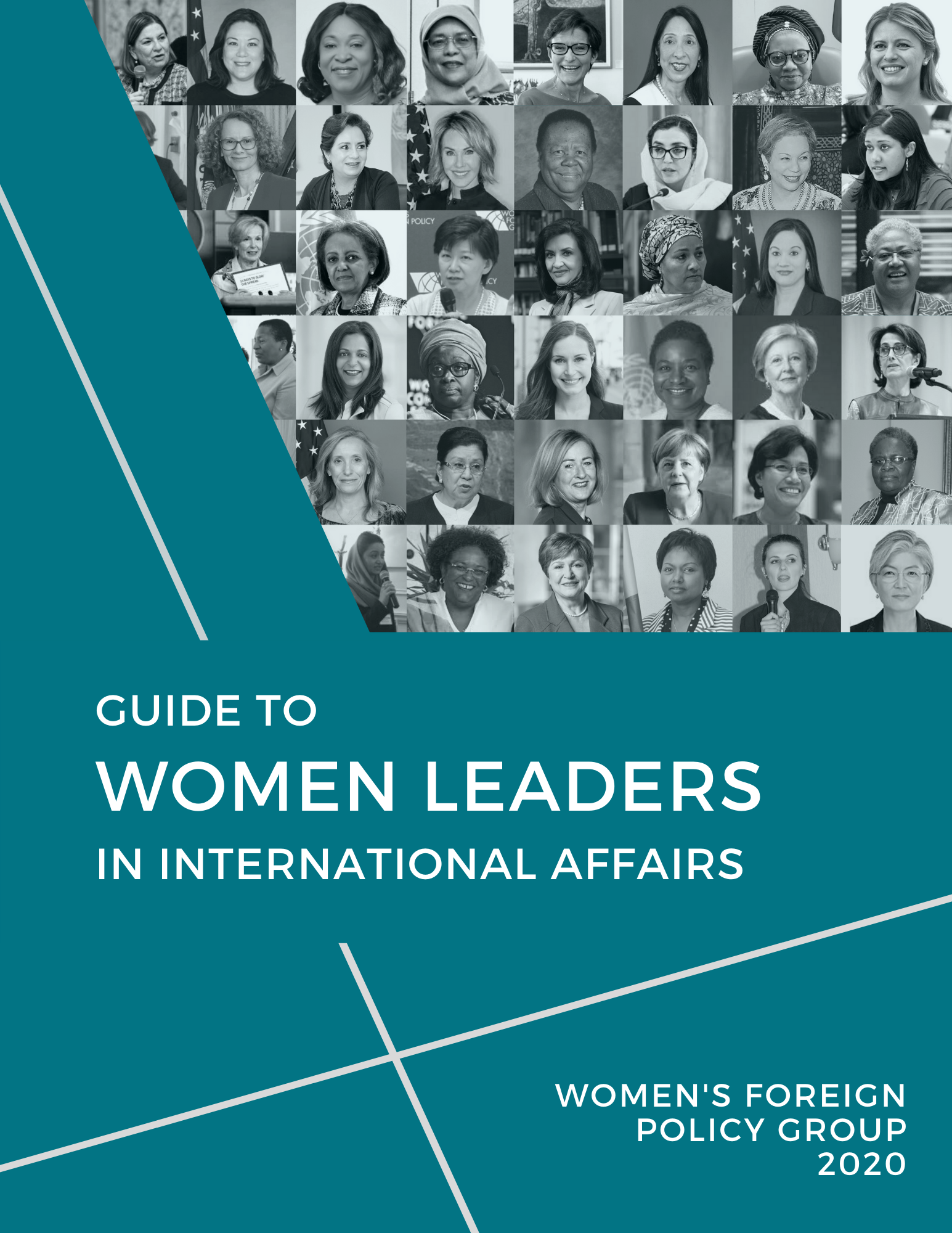 2020 Guide to Women Leaders in International Affairs 2020 Guide to Women Leaders in International AffairsWFPG WFPG's Guide to Women Leaders in International Affairs highlights women shaping foreign policy around the world and the role that they play as leaders, diplomats, and policymakers. The Guide provides an index of prominent women from across the international community, including heads of state and government, government ministers and diplomats, and leaders of international organizations and corporations. Read more 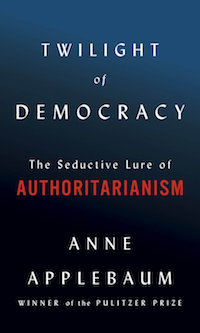 Twilight of Democracy: The Seductive Lure of Authoritarianism Twilight of Democracy: The Seductive Lure of Authoritarianism Anne Applebaum From the United States and Britain to continental Europe and beyond, liberal democracy is under siege, while authoritarianism is on the rise. Applebaum, an award-winning historian of Soviet atrocities who was one of the first American journalists to raise an alarm about antidemocratic trends in the West, explains the lure of nationalism and autocracy. She contends that political systems with radically simple beliefs are inherently appealing, especially when they benefit the loyal to the exclusion of everyone else. Read more  Shields of the Republic: The Triumph and Peril of America’s Alliances Shields of the Republic: The Triumph and Peril of America’s Alliances Mira Rapp-Hooper In Shields of the Republic, Mira Rapp-Hooper reveals the remarkable success of America’s unprecedented system of alliances. During the Cold War, a grand strategy focused on allied defense, deterrence, and assurance helped to keep the peace at far lower material and political costs than its critics allege. When the Soviet Union collapsed, however, the United States lost the adversary the system was designed to combat. Its alliances remained without a core strategic logic, leaving them newly vulnerable. Read more 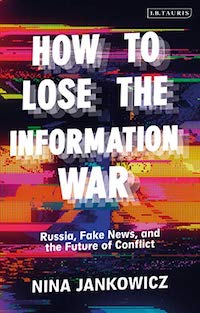 How to Lose the Information War: Russia, Fake News, and the Future of Conflict How to Lose the Information War: Russia, Fake News, and the Future of Conflict Nina Jankowicz How to Lose the Information War takes the reader on a journey through five Western governments' responses to Russian information warfare tactics - all of which have failed. Nina Jankowicz journeys into the campaigns the Russian operatives run, and shows how we can better understand the motivations behind these attacks and how to beat them. Above all, this book shows what is at stake: the future of civil discourse and democracy, and the value of truth itself. Read more 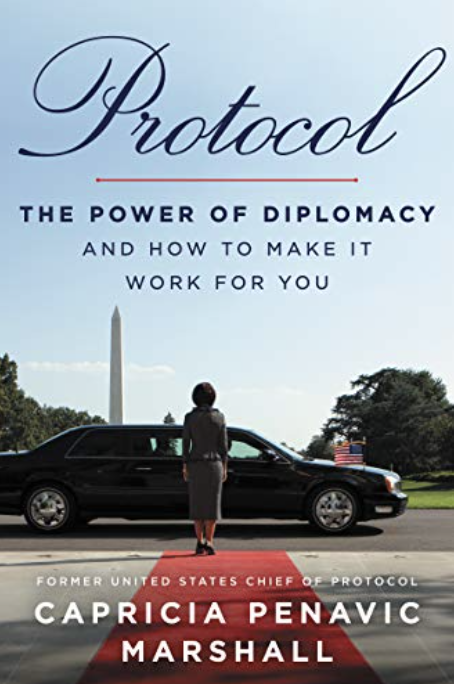 Protocol: The Power of Diplomacy and How to Make It Work for You Protocol: The Power of Diplomacy and How to Make It Work for You Capricia Penavic Marshall History often appears to consist of big gestures and dramatic shifts. But for every peace treaty signed, someone set the stage, using hidden influence to effect the outcome. In her roles as chief of protocol for President Barack Obama and social secretary to President Bill Clinton and First Lady Hillary Clinton, Capricia Penavic Marshall not only bore witness to history, she facilitated it. Read more 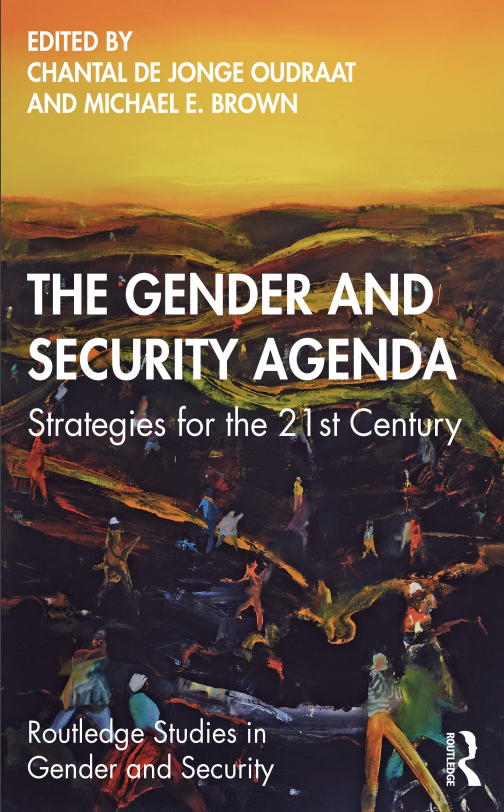 The Gender and Security Agenda: Strategies for the 21st Century The Gender and Security Agenda: Strategies for the 21st Century Edited by Chantal de Jonge Oudraat and Michael E. Brown This book examines the gender dimensions of a wide array of national and international security challenges. The volume examines gender dynamics in ten issue areas in both the traditional and human security sub-fields: armed conflict, post-conflict, terrorism, military organizations, movement of people, development, environment, humanitarian emergencies, human rights, governance. This will be of much interest to students of gender studies, security studies, human security and International Relations in general. Read more We would like to give special thanks to fall 2020 WFPG interns Katie Herrick and Janie Goheen for authoring and compiling What We're Watching: 2020 In Review.
|

